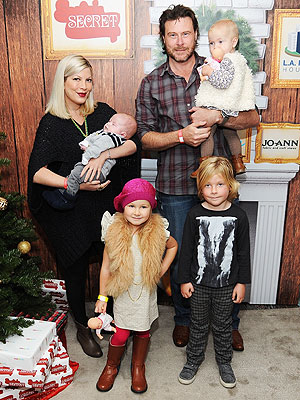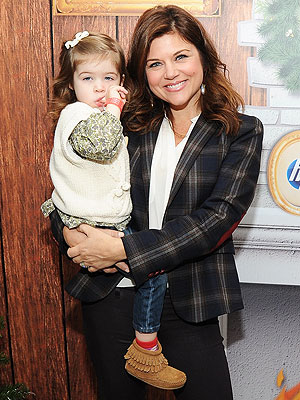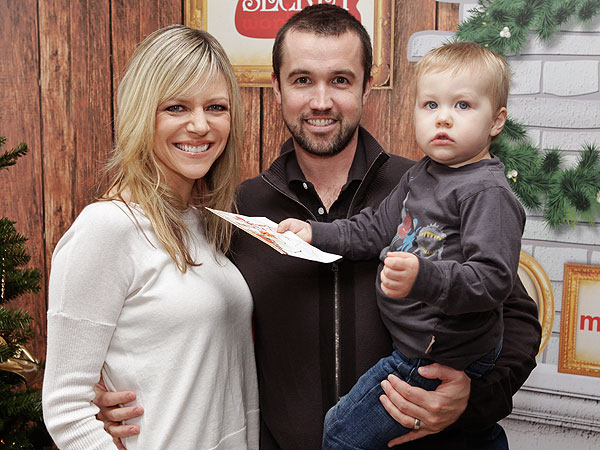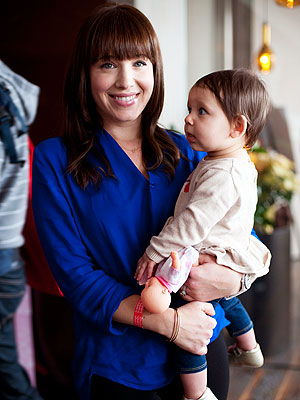A new study sets the stage for wider use of gene testing in early pregnancy. Scanning the genes of a fetus reveals far more about potential health risks than current prenatal testing does, say researchers who compared both methods in thousands of pregnancies nationwide.
A surprisingly high number — 6 percent — of certain fetuses declared normal by conventional testing were found to have genetic abnormalities by gene scans, the study found. The gene flaws can cause anything from minor defects such as a club foot to more serious ones such as mental retardation, heart problems and fatal diseases.
"This isn't done just so people can terminate pregnancies," because many choose to continue them even if a problem is found, said Dr. Ronald Wapner, reproductive genetics chief at Columbia University Medical Center in New York. "We're better able to give lots and lots of women more information about what's causing the problem and what the prognosis is and what special care their child might need."
He led the federally funded study, published in Thursday's New England Journal of Medicine.
A second study in the journal found that gene testing could reveal the cause of most stillbirths, many of which remain a mystery now. That gives key information to couples agonizing over whether to try again.
The prenatal study of 4,400 women has long been awaited in the field, and could make gene testing a standard of care in cases where initial screening with an ultrasound exam suggests a structural defect in how the baby is developing, said Dr. Susan Klugman, director of reproductive genetics at New York's Montefiore Medical Center, which enrolled 300 women into the study.
"We can never guarantee the perfect baby but if they want everything done, this is a test that can tell a lot more," she said.
Many pregnant women are offered screening with an ultrasound exam or a blood test that can flag some common abnormalities such as Down syndrome, but these are not conclusive.
The next step is diagnostic testing on cells from the fetus obtained through amniocentesis, which is like a needle biopsy through the belly, or chorionic villus sampling, which snips a bit of the placenta. Doctors look at the sample under a microscope for breaks or extra copies of chromosomes that cause a dozen or so abnormalities.
The new study compared this eyeball method to scanning with gene chips that can spot hundreds of abnormalities and far smaller defects than what can be seen with a microscope. This costs $1,200 to $1,800 versus $600 to $1,000 for the visual exam.
In the study, both methods were used on fetal samples from 4,400 women around the country. Half of the moms were at higher risk because they were over 35. One-fifth had screening tests suggesting Down syndrome. One-fourth had ultrasounds suggesting structural abnormalities. Others sought screening for other reasons.
"Some did it for anxiety — they just wanted more information about their child," Wapner said.
Of women whose ultrasounds showed a possible structural defect but whose fetuses were called normal by the visual chromosome exam, gene testing found problems in 6 percent — one out of 17.
"That's a lot. That's huge," Klugman said.
Gene tests also found abnormalities in nearly 2 percent of cases where the mom was older or ultrasounds suggested a problem other than a structural defect.
Dr. Lorraine Dugoff, a University of Pennsylvania high-risk pregnancy specialist, wrote in an editorial in the journal that gene testing should become the standard of care when a structural problem is suggested by ultrasound. But its value may be incremental in other cases and offset by the 1.5 percent of cases where a gene abnormality of unknown significance is found.
In those cases, "a lot of couples might not be happy that they ordered that test" because it can't give a clear answer, she said.
Ana Zeletz, a former pediatric nurse from Hoboken, N.J., had one of those results during the study. An ultrasound suggested possible Down syndrome; gene testing ruled that out but showed an abnormality that could indicate kidney problems — or nothing.
"They give you this list of all the things that could possibly be wrong," Zeletz said. Her daughter, Jillian, now 2, had some urinary and kidney abnormalities that seem to have resolved, and has low muscle tone that caused her to start walking later than usual.
"I am very glad about it," she said of the testing, because she knows to watch her daughter for possible complications like gout. Without the testing, "we wouldn't know anything, we wouldn't know to watch for things that might come up," she said.
The other study involved 532 stillbirths — deaths of a fetus in the womb before delivery. Gene testing revealed the cause in 87 percent of cases versus 70 percent of cases analyzed by the visual chromosome inspection method. It also gave more information on specific genetic abnormalities that couples could use to estimate the odds that future pregnancies would bring those risks.
The study was led by Dr. Uma Reddy of the National Institute of Child Health and Human Development.
___
Online:
Medical journal: http://www.nejm.org
___
Marilynn Marchione can be followed at http://twitter.com/MMarchioneAP























